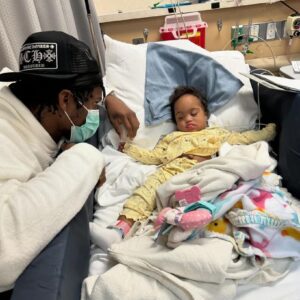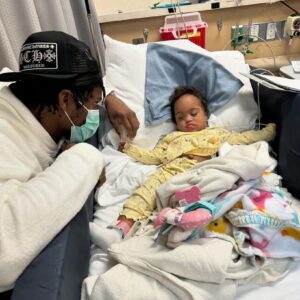In a bid to offer a normal life to twins conjoined at the top of their heads, 30 doctors from India and various countries around the world have embarked on the daunting task of successfully separating the twins, despite the considerable challenges ahead. The outcome will be confirmed in the following day.




Jaga and Kalia, originally named Honey and Singh, are two-year-old boys who have been conjoined at the head since birth. Their condition carries an 80% risk of death if they are not separated.



The mother of the twins, Pushpanjali Kanhar, a 25-year-old residing in the state of Orissa, India, was left stunned in March 2015 when she gave birth to her two sons, who were conjoined at the head – a situation she had not anticipated during her pregnancy. No hospital was able to address this unique challenge, and the family had to take the twins home, despite the assurance from the Orissa state government to provide assistance.
On August 28 of this year, the first stage of the separation surgery commenced, during which doctors established bridging blood vessels from the common blood vessels that carry blood from the heart to the brain for the twins. Dr. Swapneshwar Gadjayak, a participating surgeon, commented, “These twins are known as craniopagus twins because they have two separate brains but are joined at the head. Many such cases have been successfully separated, but if they share the same brain, it is very difficult to separate.”
The twins’ father, Bhuan Kanhar, is a farmer earning a modest income of 1,600 rupees (approximately 700,000 VND) per month. Despite his financial limitations, he tried every possible means to seek treatment for his children, but his poverty left him feeling helpless. “The family was so poor; I lost all hope and was forced to watch them suffer like that for two years,” he expressed.
For two years, the twins’ family explored various avenues for treatment, but their financial constraints rendered them helpless.
Mr. Kanhar and his wife have two other sons, aged 9 and 6, who are healthy and eagerly wish for their four children to live and play together.
Their dream took its initial step toward realization on October 26, when at a hospital in Delhi, 30 doctors spent 16 hours separating the heads of Jaga and Kalia in the first such surgery in India.
During the operation, it was discovered that the twins shared brain tissue and blood vessels, an exceptionally rare condition occurring in approximately 1 in 3 million births.
The twins faced challenging times. Dr. Randeep Guleria, director of the All India Institute of Medical Sciences, shared with the press, “The next 18 days will determine the success of the surgery.” Dr. A.K. Mahapatra, a participating surgeon, added, “Both babies had other health problems. While Jaga has heart disease, Kalia has kidney disease. Initially, Jaga was stronger, but now he is getting weaker, and Kalia is getting better.” The most significant challenge after separating the twins’ heads was providing sufficient skin to cover both heads because the separation surgery left large gaps on their heads. “If they can do it themselves, the next step is to reconstruct their skulls,” stated Maneesh Singhal, a plastic surgery expert. [Source: BBC, Daily Mail]





